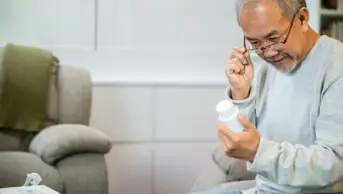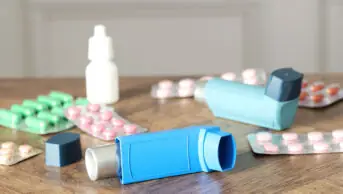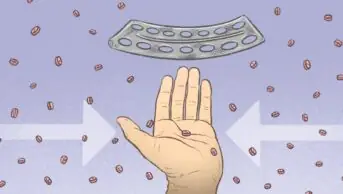
Shutterstock.com
Half of teenagers and young adults with kidney disease have used smartphones to help them remember to take their medicines, a study suggests.
The study[1]
, presented at the American Society of Nephrology Kidney Week on 14 November 2014, was undertaken at the paediatric nephrology clinic at Montefiore Medical Center in New York, and involved 15 participants (aged 13–21 years) who either had chronic kidney disease or who had undergone kidney transplants as a result of their illness. Medicine non-adherence is especially pronounced in adolescent and young adult patients.
Each participant answered a questionnaire about their medicine use, dosage and indications. The participants were also asked whether they relied on more traditional reminders to take their medicines, such as carrying a pillbox, or were already relying on their smartphones to remind them, possibly with the use of an app.
A total of 93% of those surveyed had smartphones, and 50% said they used their mobile phones to remind themselves to take their medicines. However, only 29% were aware of medical mobile apps, such as those that recorded vital signs or managed a medicine regimen.
More than three quarters of participants (77%) continued to use traditional techniques to improve their rate of medicine adherence, such as the use of pillboxes and taking drugs as part of a daily habit. The study found that only 30% used an electronic device to maintain their medicines list and schedule for taking them.
The research shows that males are more likely to use a mobile phone as a reminder than females — 71% versus 17%, and the prevalence of 100% self-reported medicine adherence was higher in teenagers who used mobile phones as a reminder.
Oleh M Akchurin, lead author of the study and assistant professor of paediatrics in paediatric nephrology at Weill Cornell Medical College, began to compile the data in early 2014, but hopes to gain more information when he involves 34 participants in early 2015 for the next phase of the study. His team will ask more specific questions about medicine-adherence techniques involving mobile phones.
“We believe the more we know about how young people are using their cell phones to manage the administration of their medications, the more knowledgeable physicians can be to help create an organised clinic-based adherence programme, which could lead to better adherence outcomes,” he says.
Akchurin notes that, when patients are not of legal age, challenges may present themselves. “Some retail pharmacists do make phone calls alerting adults that a prescription refill has not been picked up, but there may be issues if a pharmacist directly texts a reminder to an underage patient,” he says.
“Our goal is to find out the knowledge and skill levels of our patients regarding the use of smartphone-based technology to improve medication adherence through effective intervention by healthcare providers. This is a complex issue, involving patients, their caregivers and medical professionals.”
References
[1] Akchurin OM, Hollman AP, Sears D et al. Utilization of Smart Phones and Medication Adherence in Adolescents. [Presentation FR-PO402]. American Society of Nephrology Kidney Week 2014, November 11-16. (http://www.asn-online.org/education/kidneyweek/archives/)


